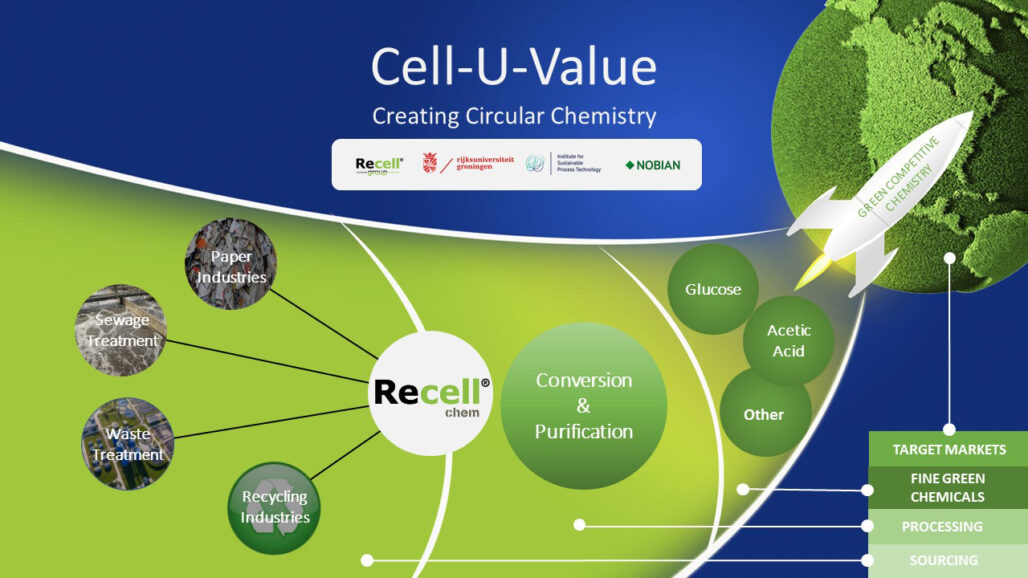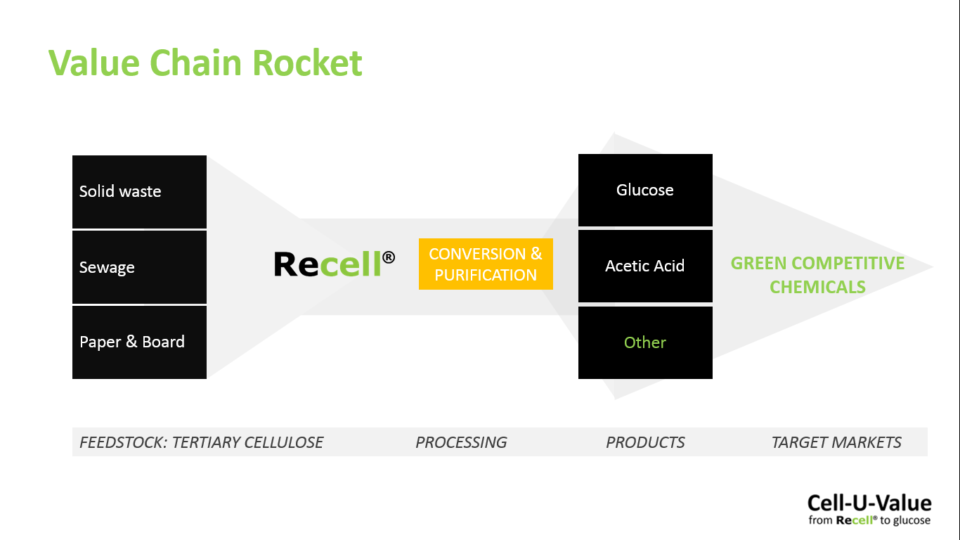Cell-U-Value aims to develop and utilize the capabilities of tertiary cellulose as a feedstock for biobased and sustainable chemicals to its fullest potential, and also to tackle and overcome the challenges coinciding with these processes.
About this initiative
Chemical industries are in need of alternatives for fossil resources. Biomass is the only available alternative for more complex molecules and can be derived from waste and other residual streams which are not in conflict with food.
Based on the low cost, its high abundance in waste and its readily available cellulose chains, the use of tertiary cellulose as a feedstock for chemicals is an attractive opportunity. Additionally, the value of this concept reaches even further, since a (temporary) carbon sink is created when waste is used as a resource for new products instead of energy.
The main challenge is to optimize the conversion of tertiary cellulose to market quality glucose via hydrolysis in an economical way. A second challenge is the target to converse glucose into acetic acid.
To reach the highest impact, the core partners enable the value chain by bringing together supply, demand and (knowledge on) conversion technology processes and are able to disseminate the knowledge broadly.

Activities and Results
In the different work packages the partners jointly work on the conversion from cellulose into bio-based and sustainable chemicals. This will take place by means of hydrolysis and fermentation integrated with reactive extraction. The focus will be on scaling up to a full-scale value chain, both on an economical and an environmental level. After that, a pilot will be done to get clarity on the functional process of production of 10 ton of bio-based fine chemicals made from cellulose.
You can still join our initiative
Contact Erik Pijlman at e.pijlman@recell.eu for more information.

Publications
- Wateralliance.nl; “Cell-U-Value: groene chemische bouwstenen uit cellulose-afval”, March 2019
- Processcontrol.nl; “Cell-U-Value project: van celluloseafval naar groene chemische bouwstenen”, March 2019
- Bioplasticsmagazine.com; “paper waste building block for sustainable chemicals”, March 2019
- Petrochem.nl; “Chemische bouwstenen uit papierafval”, March 2019
- NOM; “Een tweede leven voor pizzadozen”, April 2019
- Top Dutch; “Sustainable relationships: why the topnotch region excels in working closely together”, July 2019
You might also be interested in
Acknowledgement & partners
This project is co-funded with subsidy from the Topsector Energy by the Ministry of Economic Affairs and Climate Policy.







